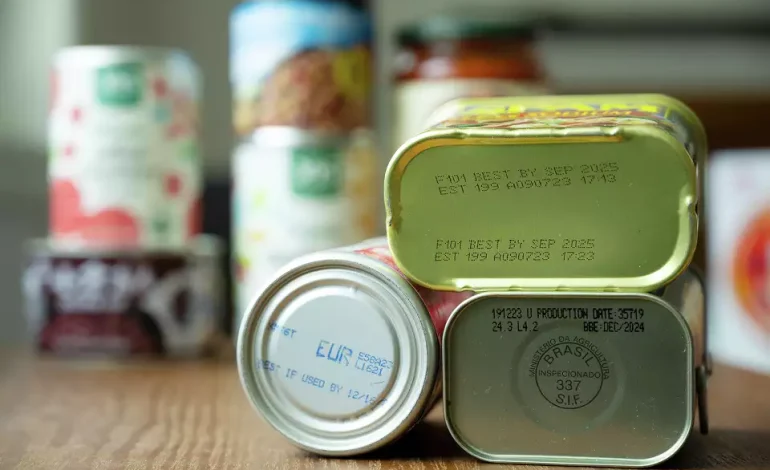California Leads the Way in Banning Confusing Food Labels to Curb Waste

California has become the first state in the US to ban confusing food labels like “sell by” and “best before” in an effort to reduce food waste and environmental impact.
Governor Gavin Newsom signed the groundbreaking legislation over the weekend, which aims to address the widespread confusion these labels cause for consumers and their contribution to food waste.
The law, which will take effect in July 2026, requires manufacturers to use standardized labels, including “Best if Used By” to indicate peak quality and “Use By” for safety. This reform seeks to eliminate the inconsistency of more than 50 different labeling terms currently found on packaged foods, which often mislead consumers into discarding still-edible products.
The lack of federal regulations regarding food labeling has left consumers guessing whether their food is still safe to eat, leading to nearly 20% of food waste nationwide, according to the FDA. In California alone, this confusion results in six million tons of unexpired food being thrown away each year. This wasted food not only represents billions of dollars lost but also contributes significantly to the state’s methane emissions, a major driver of climate change.
“Having to wonder whether our food is still good is an issue that we all have struggled with,” said Democratic Assemblymember Jacqui Irwin, who authored the bill.
She emphasized that the new law will both reduce waste and keep money in consumers’ pockets.
While California’s legislation marks a significant shift in how food will be labeled, similar efforts at the federal level have stalled. Advocates hope that California’s large market influence will push manufacturers to adopt the new labeling standards nationwide.
Erica Parker, from Californians Against Waste, noted that previous voluntary measures failed to reduce food waste.
“Food waste rates are not decreasing, they’re increasing,” she said.
With bipartisan support and backing from food banks and environmental groups, the bill is expected to serve as a model for other states and potentially drive future federal action.
Many shoppers, like 23-year-old Jasmine Acosta from Los Angeles, have found current food labels confusing. Acosta, who previously worked at a grocery store, says that terms like “sell by” can mislead people into thinking their food is no longer safe. She believes the standardized labels will help consumers make better decisions, reducing waste and saving money.
Fortune, SFGate, and the Daily Mail contributed to this report.








